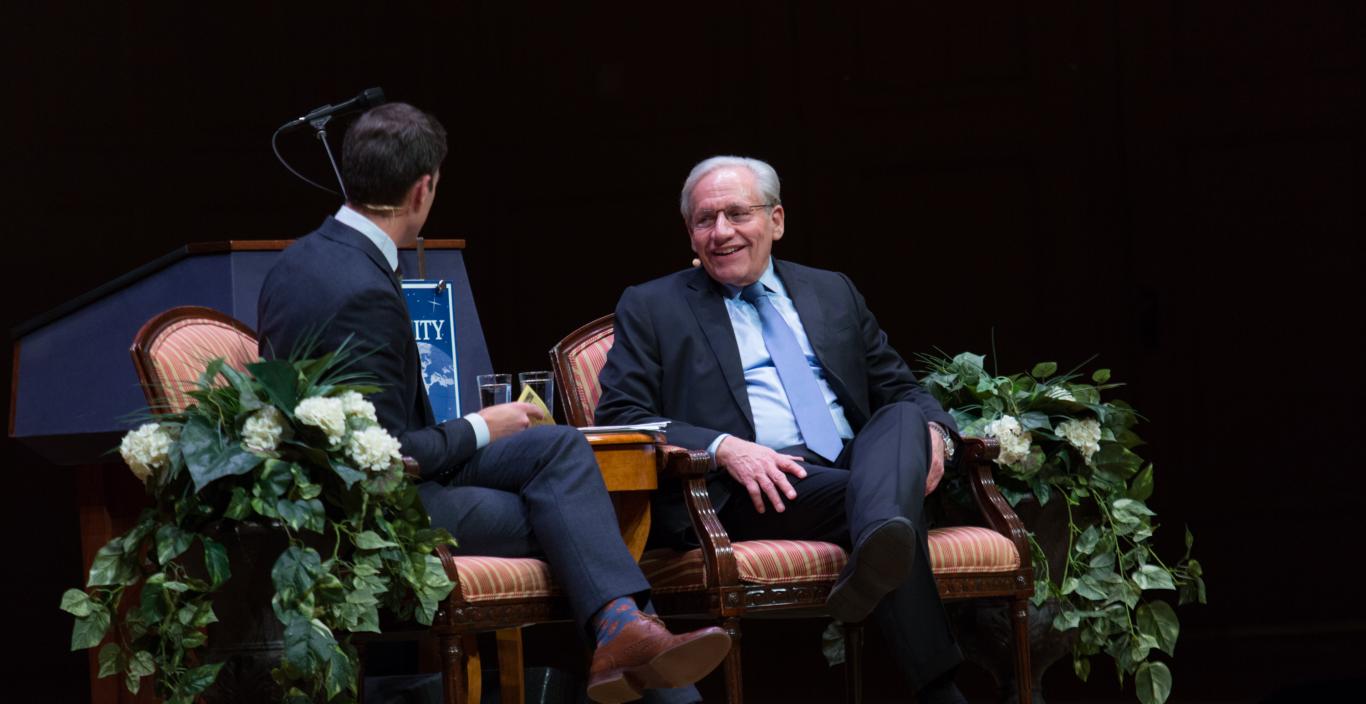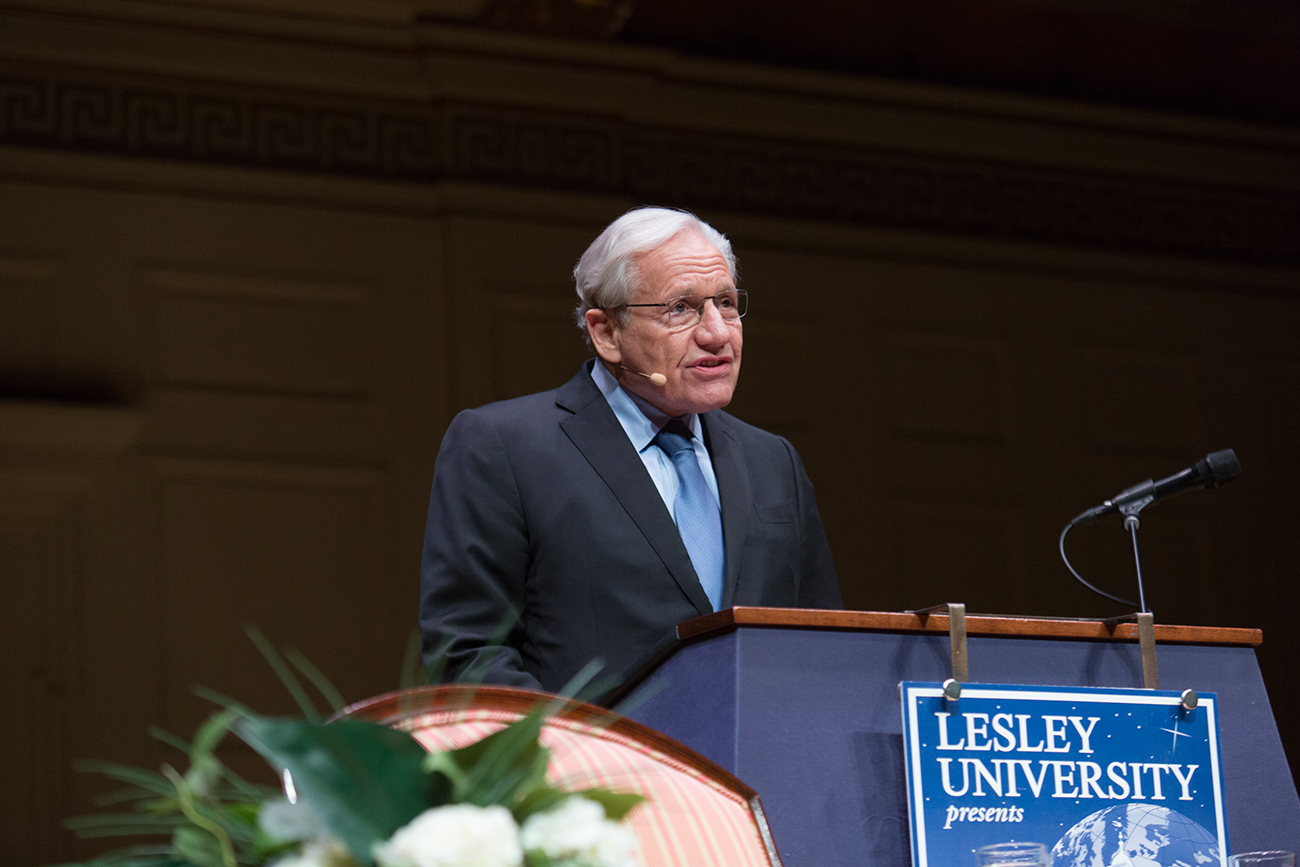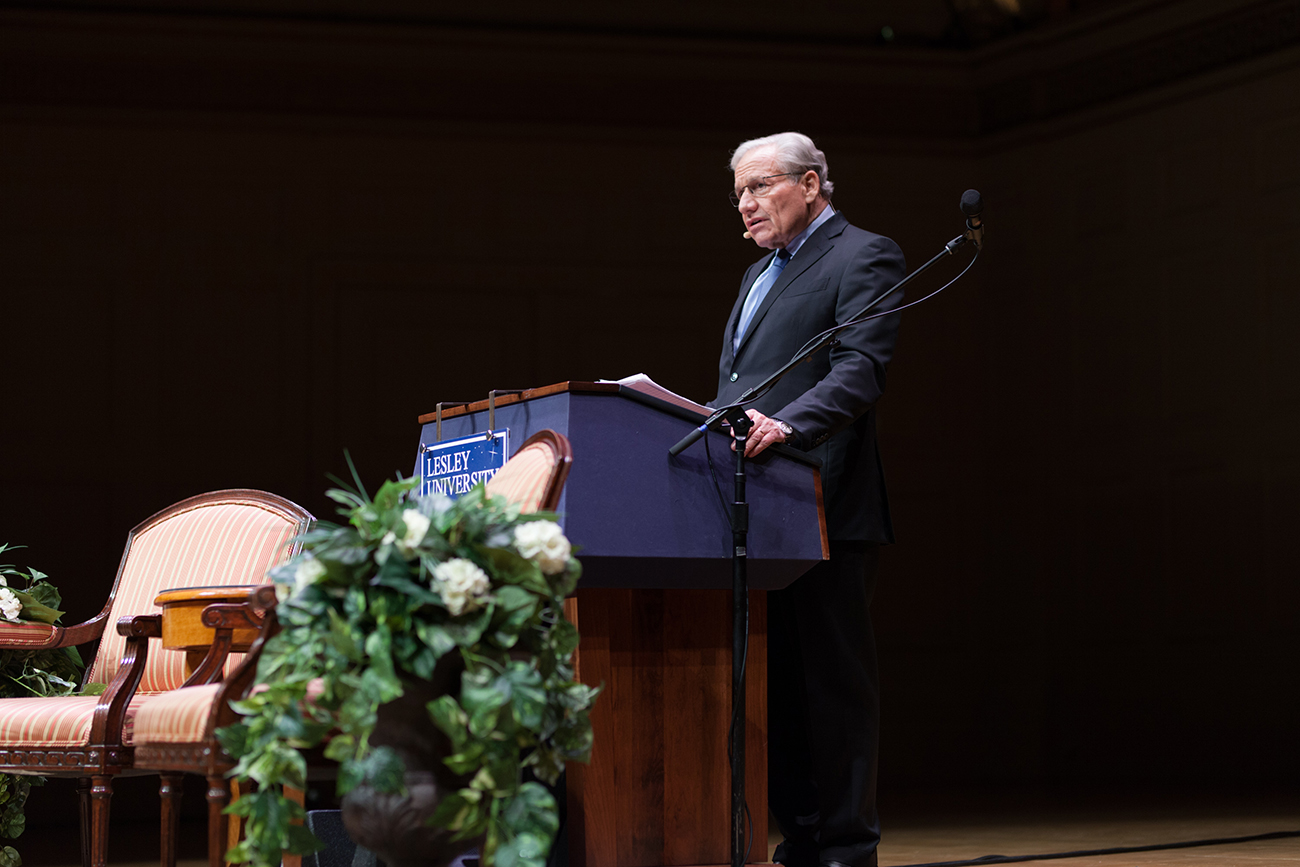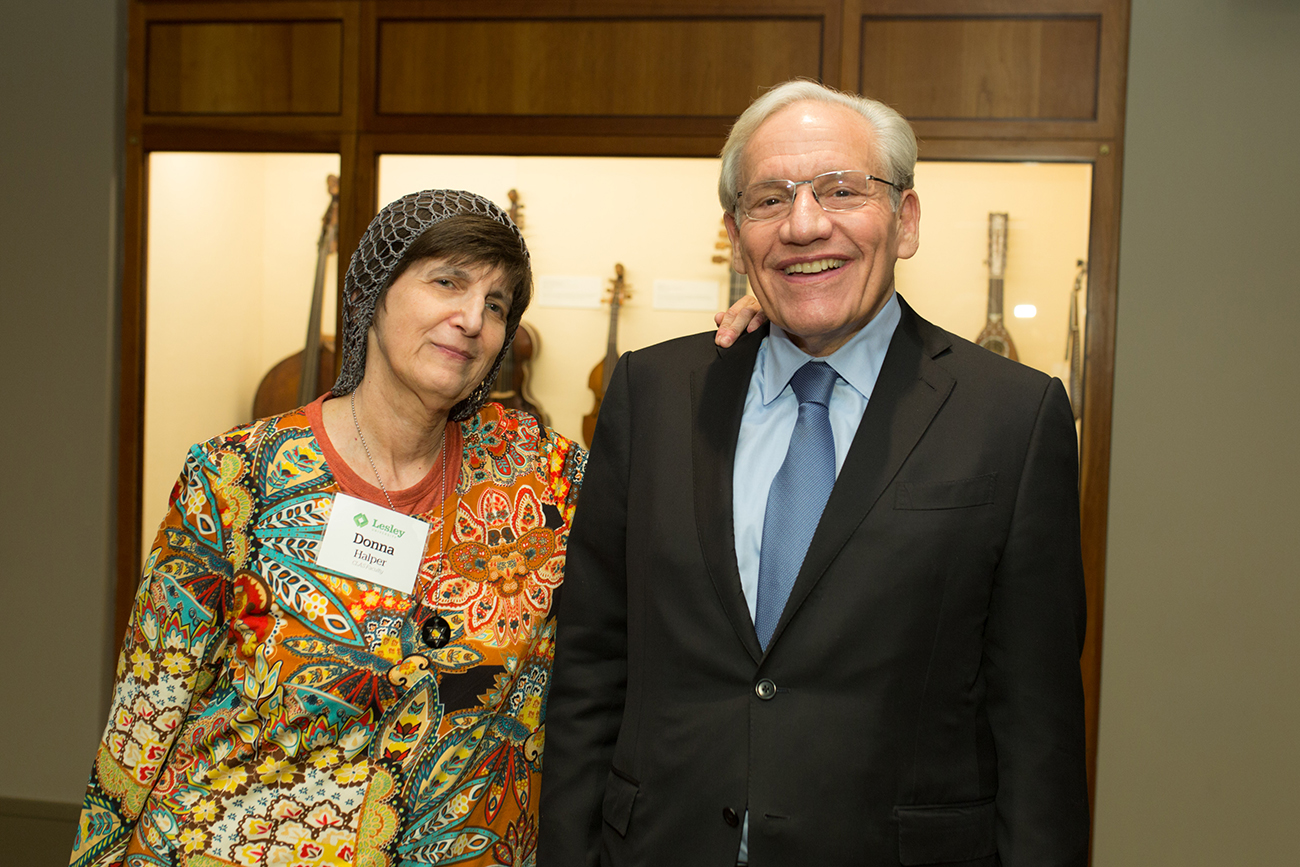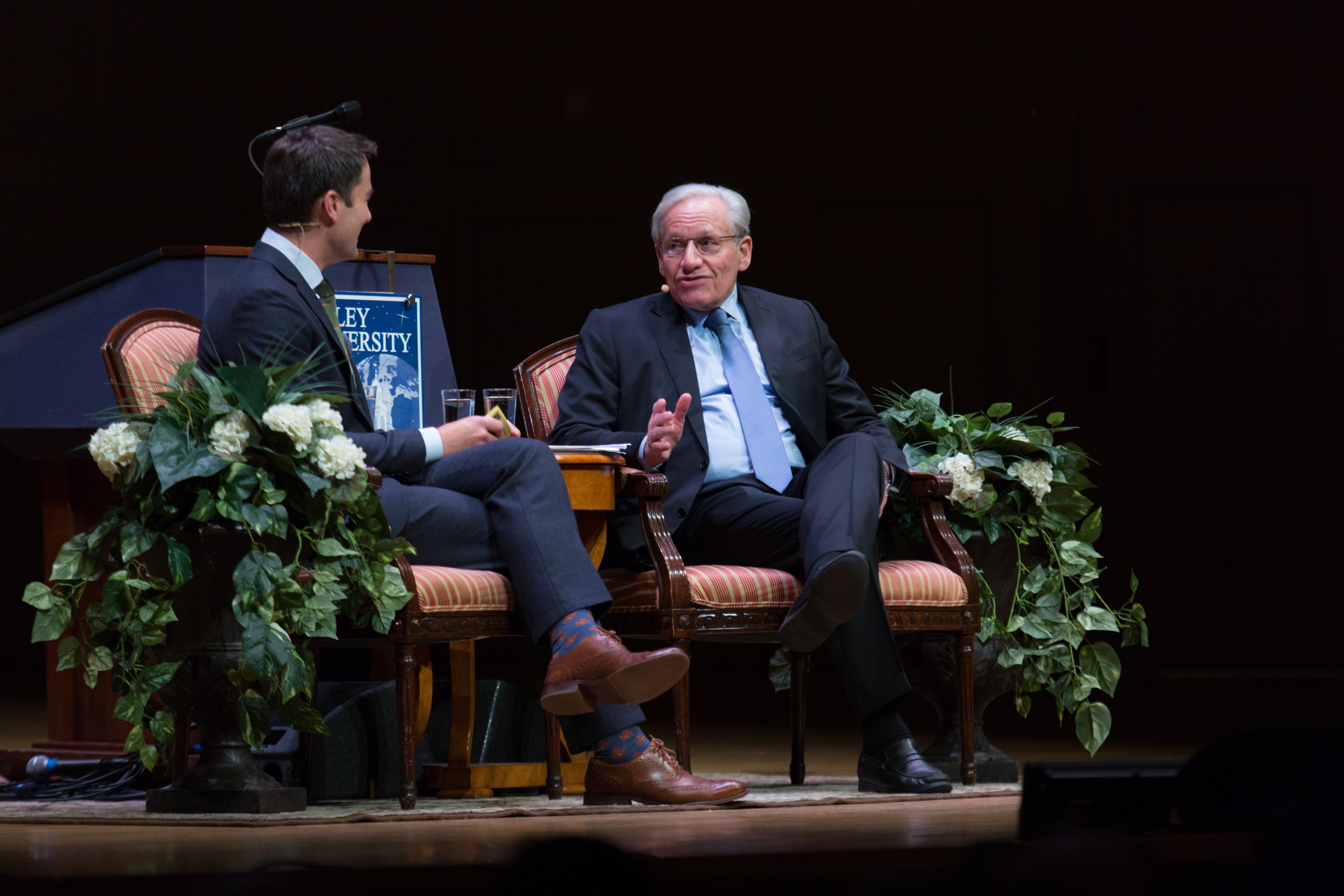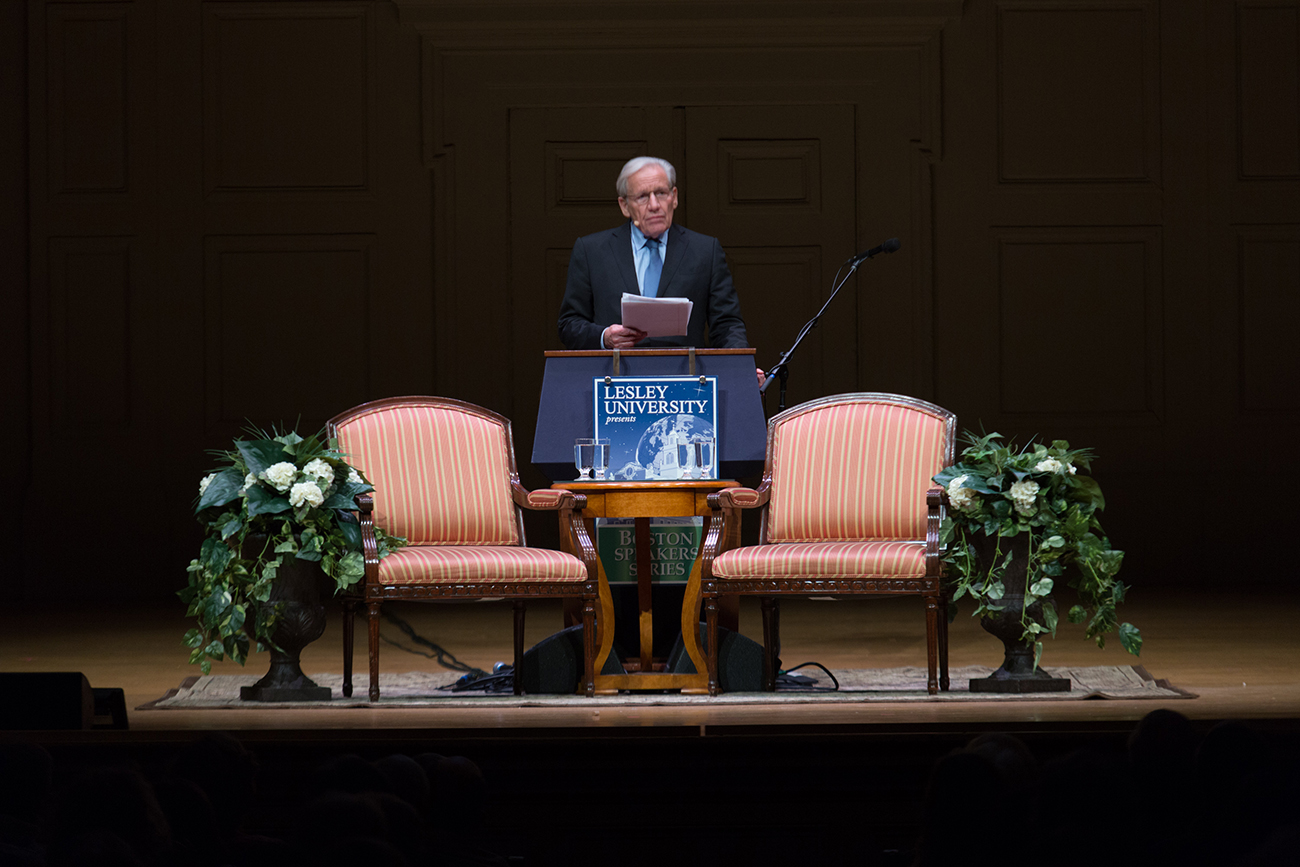Journalist and author Bob Woodward – who with fellow Washington Post reporter Carl Bernstein reported on the Watergate scandal that led to President Richard Nixon’s resignation in 1974 – shared riveting recollections of that experience, along with insights from his nearly five-decade career covering politics.
Woodward addressed a packed house in Symphony Hall during the final lecture of 2019 at Lesley University’s Boston Speakers Series on Wednesday night, speaking in slow and deliberate cadence peppered with occasional humor.
He joked about the cross he bears by having been portrayed by Hollywood heartthrob Robert Redford in “All the President’s Men,” the acclaimed 1976 film about the Watergate scandal.
“You have no idea how many women I’ve disappointed,” he said.
Woodward has authored 19 books and has written books and reported on nine presidents in all.
“Ken Burns the documentarian reminded me recently, ‘That’s 20 percent of the presidents we’ve had.’ Um yes, I’m that old,” the 76-year-old Woodward quipped.
The Illinois native captivated the audience with his thoughts on topics ranging from the impeachment inquiry into President Donald Trump, to the key lessons from Nixon’s resignation and President Bill Clinton’s impeachment. Woodward also spoke about the importance of understanding opposing views, honoring the courage of those who place country before self, and seeking the truth.
“I think there are some very clear lessons from Watergate and I wonder if we’ve forgotten them. I think the primary lesson is the centrality of truth,” said Woodward. “How can we have a useful political dialogue in the country, citizen understanding – even journalism – when we have a president who has somewhat successfully destroyed the common agreement about what is a fact?”
He recalled that when Nixon eventually resigned on Aug. 9, 1974, he said “Always remember, others may hate you, but those who hate you don’t win unless you hate them, and then you destroy yourself.”
“Think of the wisdom in that blinding insight,” said Woodward. “Nixon almost realized at that moment that the piston of his presidency was hate.”
Woodward drew a parallel to Trump’s presidency.
“The Trump rallies that we’ve seen on television time and time again are a 21st century version of this hate-filled world, where Trump will see a scuffle going on and he will say, ‘Go get him, beat him up, I will pay your legal fees,’” said Woodward.
“The other lesson in Watergate is that a president must hold political and moral authority,” said Woodward. “That political and moral authority gives the president a stand in the world and the country.”
Insights on impeachment
Woodward believes the impeachment inquiry into President Trump offers important reassurance that accountability and oversight are alive and well in our democracy, noting by way of example that Lt. Col. Alexander Vindman, a member of the National Security Council, testified during the impeachment hearings earlier this week.
